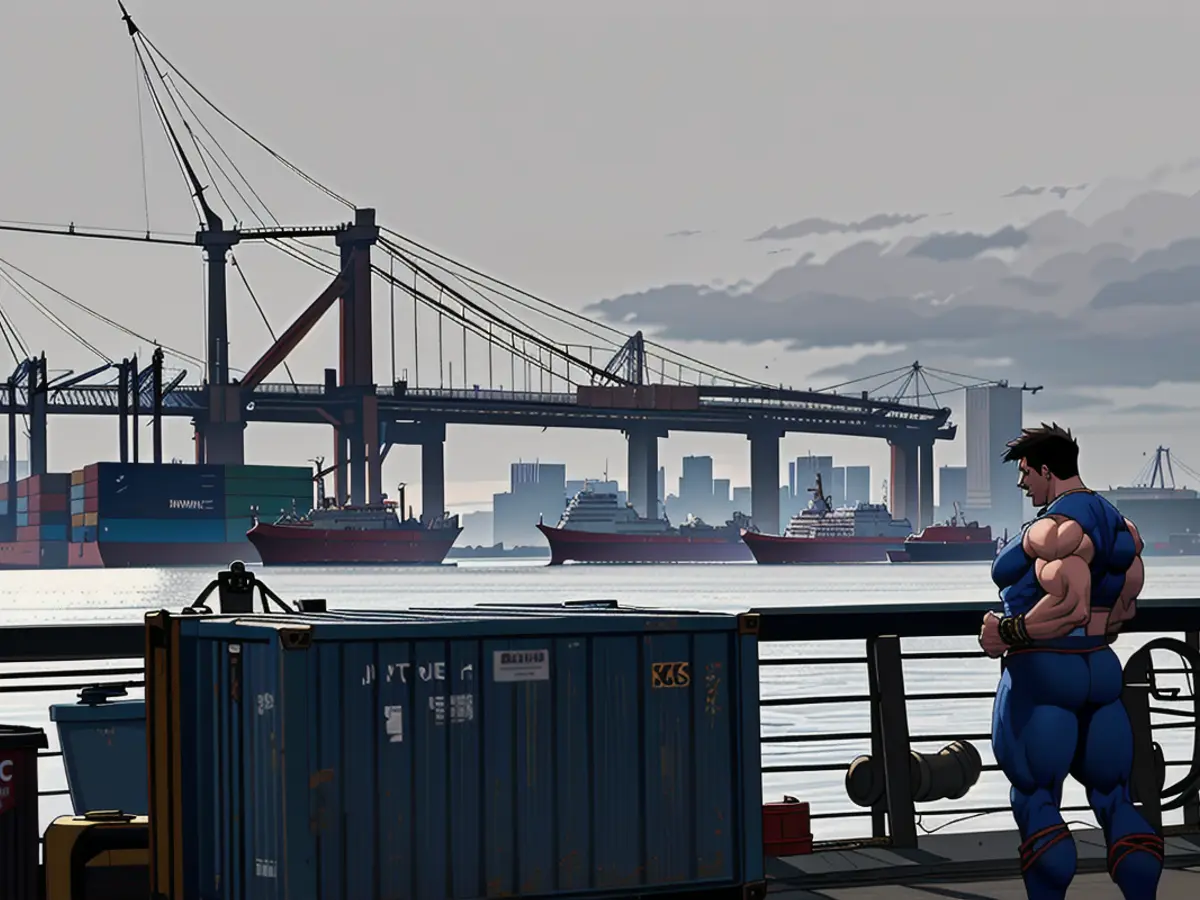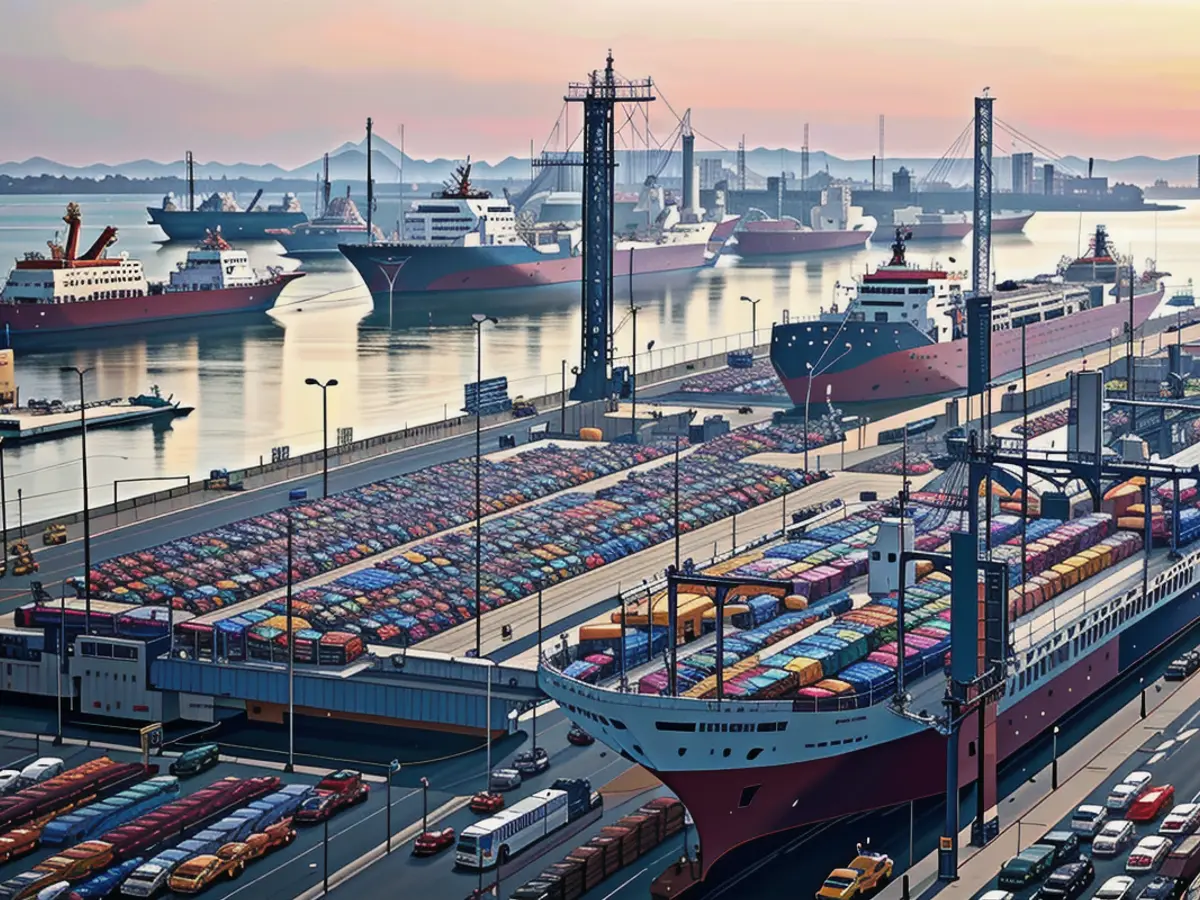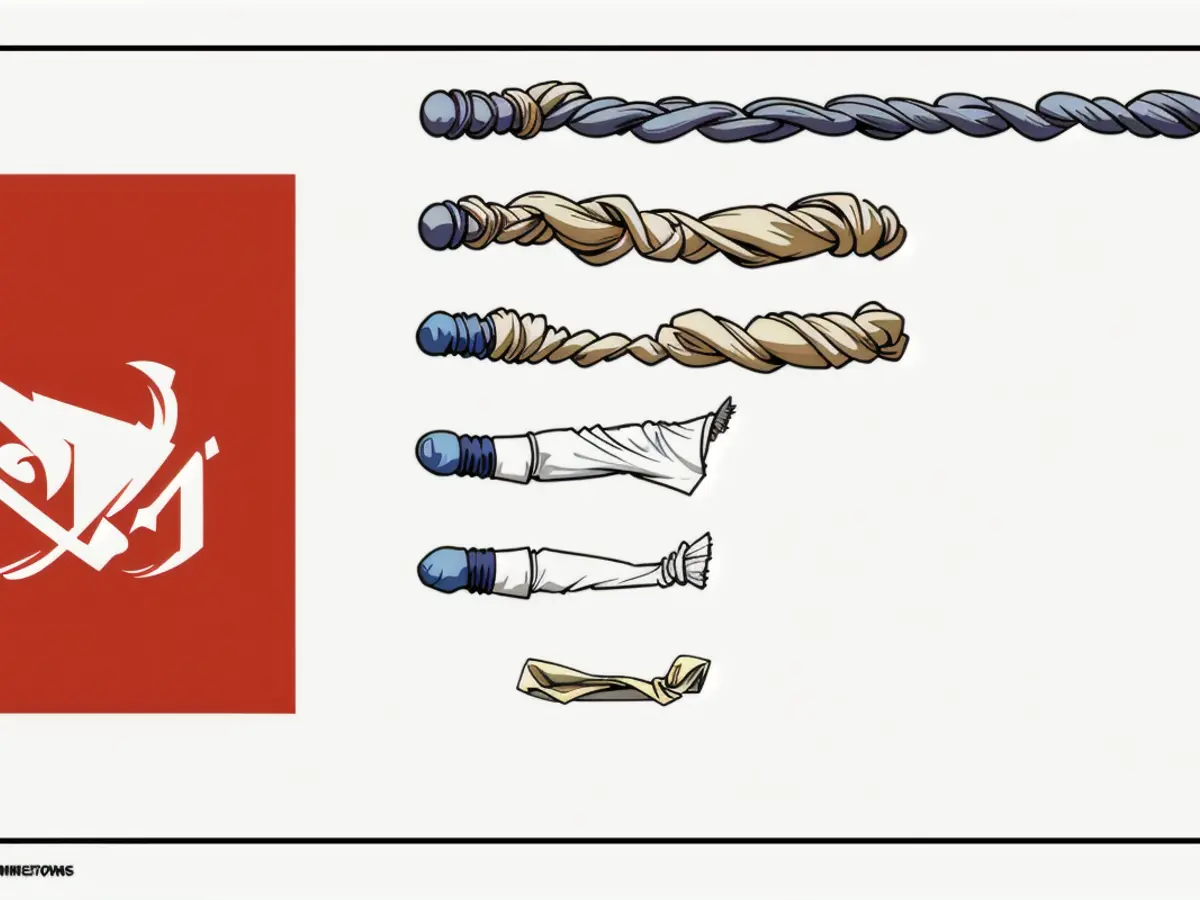Trump's tariff disruption is generating a lucrative business opportunity for consultants
As the clock ticks down towards Trump's return to the Oval Office, businesses dealing with US imports and exports are grappling with pressing queries like: Should we relocate our production? If yes, where? What will the additional costs be? Will we need to adjust our prices due to these changes? Will there be a customer exodus as a result?
These queries surfaced following Trump's pledge to impose blanket tariffs on all imported goods, with the steepest levies reserved for Chinese imports, followed by Mexican and Canadian goods. These three nations are America's primary trade partners.
Last week, Trump escalated matters further by threatening new tariffs against European Union countries unless they substantially increased their purchases of US oil and gas. "Otherwise, it's TARIFFS all the way," he warned on Truth Social, without specifying the tariff rates.
Businesses are not just fretting about the tariff magnitudes; they're also concerned about the speed of implementation. With Trump assumed to take office on January 20, he can instantaneously disrupt global trade with the stroke of a pen, signing new tariffs into law. Countries subjected to these new tariffs may retaliate with counter tariffs on US-made products, harming export-oriented industries such as oil and gas, chemical manufacturing, and auto production.
This leaves businesses with minimal time to prepare, scrambling to procure last-minute bulk shipments of inventory or seal new manufacturing contracts with foreign producers.
Under the pressure of mounting duress, businesses may make hasty decisions with dire aftermaths.
Enter the arena of supply chain and trade consultants.
As Dan Gardner, president of Trade Facilitators, Inc., a Los Angeles-based consultancy firm specializing in global supply chain management, US trade compliance, and logistics, put it, "I don't think anyone competent in global trade is looking to conduct business amidst chaos and suffering. But the fact remains that companies will forge ahead, and consultants will remain indispensable."
The reason for their surging demand
Lately, Gardner has been helping clients pinpoint feasible production countries. His clientele spans various industries, from importers and exporters with annual sales ranging from $200 million to $2 billion, he revealed.
Subsequently, he makes contact with potential producers in the targeted countries, and then provides the clients with projected "total landed costs" comprising customs duties, production, and transportation expenses, as well as other related fees. This allows clients to determine the final product prices for their customers.
In most cases, Gardner charges a monthly retainer fee or manages contracts with clients for project deliverables over a set period, ranging from six months to a year, often extending beyond the agreed timeframe. Some projects have been postponed due to lack of clarity around Trump's tariff plans.
Nevertheless, new client inquiries, Gardner revealed, have picked up in anticipation of Trump's return to the White House. Some clients have even modified their production plans following consulting with him in preparation of future tariffs.
Joseph Esteves, CEO of Maine Pointe, a supply chain and operations consulting firm affiliated with SGS Group, noted that many potential clients are eager to avoid repeating pandemic-era mistakes. "The pandemic taught them the hard way to align their inventory with demand and prevent stockpiling of ineffective inventory," he argued.
Given the potential for new tariffs that could significantly increase prices, many companies have been stockpiling goods to evade the need to raise prices. However, if consumer demand wanes, this could lead to an oversupply situation akin to the pandemic, where companies found themselves with excess unsold inventory. To help clients manage supply and demand while minimizing price impact, Esteves explained, several clients are seeking Maine Pointe's expertise.
Esteves believes that business activity will persistently escalate as Trump assumes office. "I believe we're heading for some remarkable consulting years," he predicted, adding that he plans to hire more staff to meet the anticipated surge in demand.
AI stepping into the limelight
Artificial intelligence has already started making strides in the supply chain and consulting sector, enabling companies to offer bespoke solutions. For some, AI forms the bedrock of their business.
For instance, GEP, a supply chain and procurement software company that also provides consulting services, utilizes AI systems to monitor spending, manage multiple suppliers, track inventory, oversee contracts, and receive real-time updates and alerts on prices and potential disruptions. The AI system even predicts cost savings opportunities and possible points of disruption.
"Contingency planning services are truly the buzz," John Piatek, vice president of consulting at GEP, confirmed. "Clients are eager to determine their next best options, so they can switch quickly and decisively once tariffs are implemented to secure their solutions before their competitors."
This is because, if a competitor were to relocate production ahead of its rival, it might secure better rates. Furthermore, a production facility might be unable to accommodate additional work contracts, given its capacity constraints.
Currently, GEP is "quite occupied" due to "heightened business opportunities connected to the approaching Trump administration," Piatek shared with CNN. However, once any new tariffs are implemented, it's anticipated that the workload will only escalate, he mentioned.
Businesses are closely monitoring the potential impact of Trump's tariffs on their operations, particularly in sectors reliant on imports such as oil and gas, chemical manufacturing, and auto production. In response, they are seeking advice from consultants like Dan Gardner, who helps companies identify feasible production locations and calculate total landed costs.
The demand for consultants like Gardner has surged as businesses prepare for potential tariff changes, with some clients modifying their production plans accordingly. Similarly, supply chain and operations consulting firms like Maine Pointe are seeing an increase in client inquiries as companies seek guidance on managing supply and demand while minimizing price impact.
As tariffs and geopolitical changes continue to shape the business landscape, the role of consultants and AI in supply chain management is likely to become even more critical. Firms like GEP, which utilize AI for contingency planning and cost savings, are already experiencing heightened business opportunities in anticipation of Trump's return to office.









